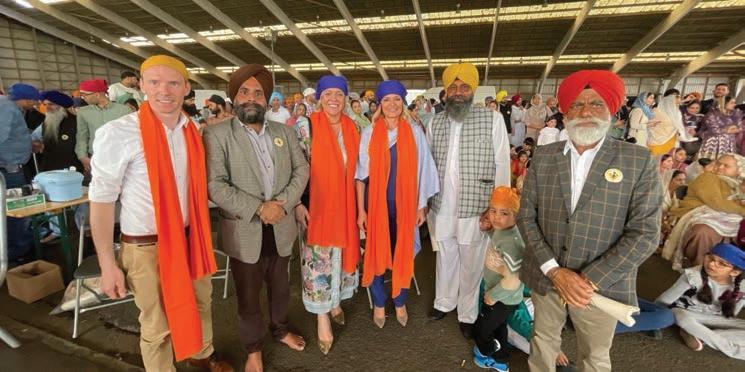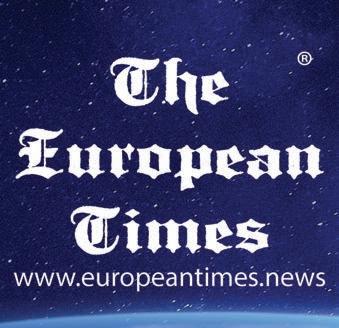








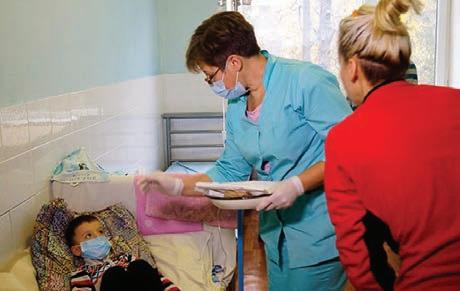
BATTLE
BRUSSELS: QUARITSCH ON EUROPE’S POPULIST RECKONING Berlin-based expert analyzes missed reform opportunities ahead of pivotal EU vote
During a recent visit to Brussels of Alona Lebedeva, the head of the industrial Aurum Group, I had the opportunity to meet and interview her about her professional career and her commitment to help Ukrainian children
See page 10
MAXETTE PIRBAKAS: IN DEFENSE OF AN ADVOCATE FOR THE OUTRE-MER
See page 14
CHIEF EDITOR
Dr. Petar Gramatikov
Contributing Team:
Juan Sánchez Gil
Robert Johnson
Gaston de Persigny
Charlie W. Grease
Willy Fautré
Jan Leonid Bornstein
© 2024 The European Times News. BRUXELLES MEDIA GROUP. www.bxl-media.com
All rights reserved, The European Times is a trademark registered in Spain. contact@europeantimes.news
The European Times is an online newspaper with a Spanish view on globlal and European matters. On certain occasions we may do special paper editions.
We accept external contributions specially from members of civil society, that otherwise are not given a space.
The European Times NEWS aims to cover news that matter to increase the awareness of citizens all around geographical Europe. Here you find the facts that many don´t dare to publish. The opinions that many try to hide. If you have news that you want to be known, this is a place. We have a strict policy against fake news.
DISCLAIMER OPINIONS:
The opinions of the authors or reproduced in the articles are the ones of those stating them and it is their own responsibility. Should you find any incorrections you can always contact the newsdesk to seek a correction or right of replay.
Images belong to their author, owners or licencees. Some of the images used have been created with artificial intelligence.

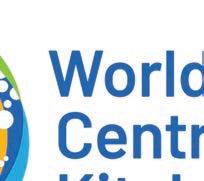




Founded in 2010 by Chef José Andrés, World Central Kitchen (WCK) is a nonproft organization that is frst to the frontlines providing fresh meals in response to crises. Applying our model of quick action, leveraging local resources, and adapting in real time, WCK has served more than 350 million nourishing meals around the world.
When disaster strikes, WCK’s Relief Team mobilizes with the urgency of now to start cooking and serving meals to people in need. By partnering with organizations on the ground and activating a network of local restaurants, food trucks, or emergency kitchens, WCK serves comforting meals to survivors of disasters quickly and e‹ectively. To support regional economies, WCK prioritizes purchasing local ingredients to cook with or distribute directly to families in need.
We know that good food provides not only nourishment, but also comfort and hope, especially in times of crisis. Learn more at wck.org.
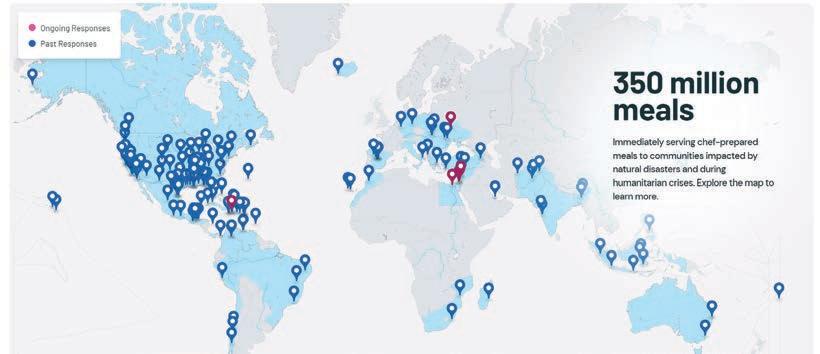

As the calendar pages turn towards June 6-9, 2024, the political landscape of Europe is buzzing with anticipation. The upcoming elections to the European Parliament are set to be a pivotal moment in determining the future direction of the European Union (EU). With the continent’s political, economic, and social fabric increasingly interwoven, the stakes have never been higher. At the heart of the electoral battle are several key parties, each with its vision for the future of Europe:
Leading the charge is the European People’s Party (EPP), a bastion of center-right politics in the EU. Known for its commitment to market-oriented economic policies, social conservatism, and European integration, the EPP has historically been a dominant force in the Parliament. As the 2024 elections approach, the party is rallying its base with promises of economic stability and security amidst global uncertainties.
Party of European Socialists (PES)
On the other side of the political spectrum, the Party of European Socialists (PES) is positioning itself as the champion of the working class
and advocate for social justice. With a platform centered around fair wages, workers’ rights, and a robust social safety net, the PES is appealing to voters disillusioned by economic disparities and seeking a more equitable Europe.
Alliance of Liberals and Democrats for Europe Party (ALDE)
The Alliance of Liberals and Democrats for Europe Party (ALDE), currently as “Renew Group” continues to make the case for a liberal and progressive Europe. Emphasizing individual freedoms, human rights, and a strong stance on environmental sustainability, ALDE is courting the centrist and progressive vote, aiming to bridge the gap between the left and right.
The European Democratic Party (EDP) stands out with its centrist, pro-European stance, advocating for a “United in Diversity” Europe. The EDP is focusing on strengthening European democracy, fostering economic growth through innovation, and supporting small and mediumsized enterprises (SMEs).
European Green Party
The European Green Party is riding a wave of increased environmental
awareness, pushing for aggressive action on climate change, sustainable development, and green jobs. With the climate crisis at the forefront of many voters’ minds, the Greens are poised to make significant gains in the upcoming elections.
European Free Alliance (EFA)
The European Free Alliance (EFA) gives a voice to Europe’s regions and minority groups, advocating for selfdetermination, cultural preservation, and regional autonomy. In a union often dominated by larger member states, the EFA seeks to ensure that all voices are heard.
The Identity and Democracy Party, evolving from the Movement for a Europe of Nations and Freedom, represents the nationalist and eurosceptic flank of European politics. With a focus on national sovereignty, border control, and skepticism towards EU integration, the party aims to reshape Europe’s approach to governance and migration.
European Conservatives and Reformists Party (ECR)
The European Conservatives and Reformists Party (ECR) brings a conservative and reformist agenda to the table, advocating for a decentralized EU, economic freedom, and conservative social values. The
ECR challenges the status quo, calling for significant reforms in how the EU operates.
Party of the European Left
The Party of the European Left unites various left-wing parties and movements across Europe, championing social equality, workers’ rights, and anti-austerity measures. In the face of rising inequality, the party seeks a radical transformation of European society.
European Christian Political Movement (ECPM)
Finally, the European Christian Political Movement (ECPM) represents a unique blend of Christian democratic, social conservative, and pro-life policies. The ECPM emphasizes the importance of Christian values in shaping European policies and society.
Will there be any new parties?
This is something we will probably learn in the coming weeks, but for the moment that is what we have.
As Europe stands at a crossroads, the 2024 European Parliament elections present a crucial opportunity for voters to decide the continent’s future. With a diverse array of parties vying for influence, the outcome will undoubtedly have a lasting impact on the direction of the European Union and its role on the global stage. ■
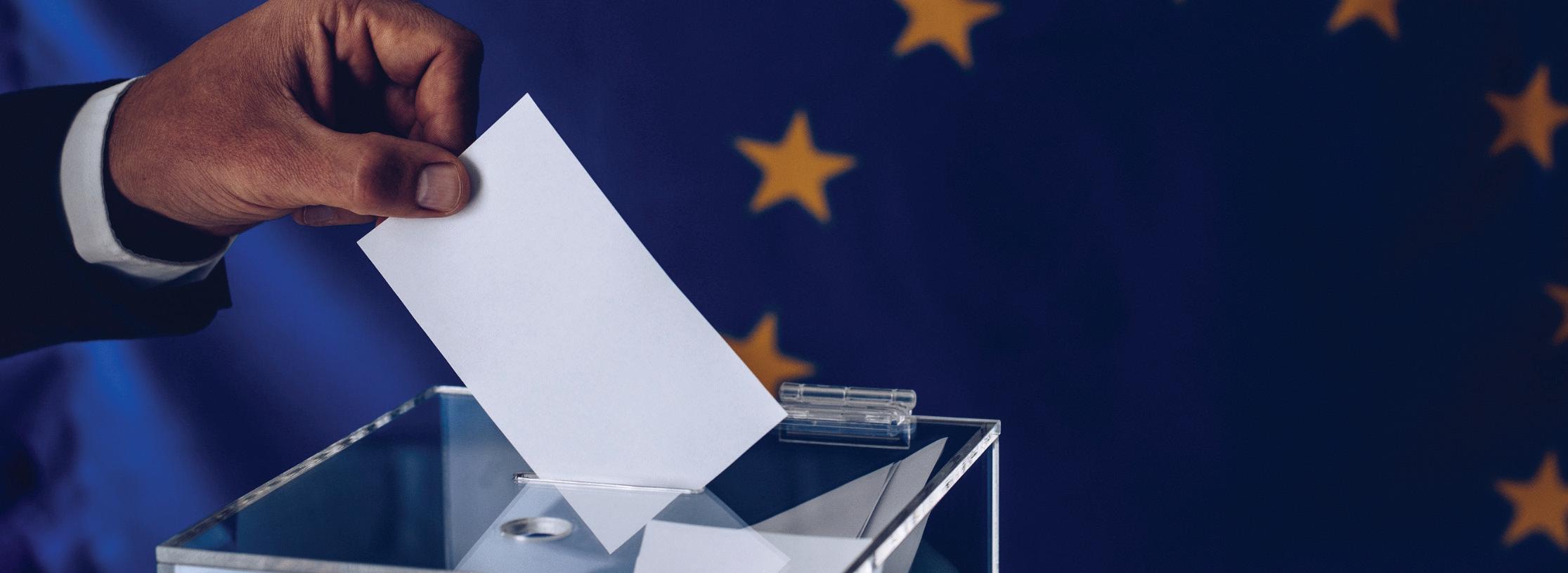
As the European Union prepares for the pivotal European Parliament elections scheduled for June 6-9, 2024, the concept of transparency has emerged as a cornerstone of democratic integrity. In an age where misinformation can easily sway public opinion and erode trust in political institutions, the commitment of Members of the European Parliament (MEPs) to transparency has never been more critical.
Transparency is not merely a procedural necessity; it is the foundation upon which the relationship between the electorate and their representatives is built, ensuring accountability, fostering trust, and promoting an informed and engaged citizenry.
Transparency in the context of the European Parliament encompasses several key dimensions. It involves the clear and accessible communication of MEPs’ positions on issues, their voting records, their attendance in parliamentary sessions, and their interactions with lobbyists and interest groups. Moreover, financial transparency regarding campaign funding and personal assets is essential to prevent conflicts of interest and ensure that MEPs serve the public interest above all.
The digital era presents both challenges and opportunities for enhancing transparency. Social media platforms and digital communication tools have made it easier for MEPs to share information and engage with constituents.
However, these platforms can also be breeding grounds for misinformation and disinformation campaigns that undermine the integrity of the electoral process.
It is imperative that both MEPs and electoral authorities leverage digital tools responsibly to promote accurate information and foster a well-informed electorate.
To safeguard and enhance transparency, several mechanisms can be implemented or strengthened. These include:
Ensuring that all documents related to parliamentary proceedings, including committee reports and legislative proposals, are readily accessible to the public.
• Financial Disclosure Requirements;
Mandating comprehensive disclosure of financial interests, campaign contributions, and assets by MEPs to prevent conflicts of interest.
• Lobbying Transparency: Introducing stricter regulations on lobbying activities, including a public register of lobbyists and detailed records of meetings between lobbyists and MEPs.
• Digital Literacy Campaigns: Promoting digital literacy among the electorate to help citizens discern reliable information from misinformation and engage critically with digital content.
While mechanisms for promoting transparency are crucial, the ultimate guardians of transparency are the voters themselves.
An informed and vigilant electorate plays a critical role in holding MEPs accountable. By actively seeking out reliable information, questioning the actions and decisions of their representatives, and participating in the democratic process, citizens can ensure that transparency is upheld.
As the 2024 European Parliament elections approach, the spotlight is on MEPs to demonstrate their commitment to transparency.
The elections offer a chance for candidates to connect with voters, articulate their visions for Europe’s future, and showcase their dedication to open and accountable governance. For voters, the elections represent an opportunity to shape the direction of the European Union by electing representatives who embody the values of transparency, integrity, and democracy.
The 2024 European Parliament elections are more than just a political contest; they are a referendum on the values that underpin the European Union.
Transparency, as a fundamental democratic principle, will play a critical role in these elections. By prioritizing transparency, MEPs can strengthen the trust and confidence of the electorate, paving the way for a more accountable, democratic, and united Europe.
The path forward is clear: a commitment to transparency from all stakeholders—MEPs, candidates, and voters alike—is essential for the health and future of European democracy.■

s the European Union gears up for its pivotal parliamentary elections in June 2024, a new policy brief from the Hertie School’s Luise Quaritsch offers a comprehensive look at what’s at stake and the potential implications for the bloc’s future direction.
Quaritsch, a policy fellow at the Hertie School in Berlin, argues that the 2024 elections could mark a seismic shift in EU politics, with rightwing Eurosceptic parties projected to make major gains. This could fundamentally alter the European Parliament’s traditionally progressive, pro-European approach.
“The European Parliament has traditionally been a progressive force in policymaking, often pushing for more far-reaching, pan-European solutions than Member States in the Council,” Quaritsch writes. “With a new center-right and far-right majority coalition possible after the election, the Parliament could go from championing pro-European initiatives to blocking them.”
The policy brief, titled “On the road to the 2024 European elections: Institutional timeline and missed opportunities,” provides an in-depth analysis of the key issues surrounding these consequential elections.
One of the core sections examines the tight timeline policymakers face in trying to close out legislative initiatives before the end of the current parliamentary term in late April. Critical issues like the EU
budget, support for Ukraine, fiscal rules reform, environmental policies, and asylum/migration still hang in the balance.
From May onward, Quaritsch notes, the focus will shift heavily towards campaigning by the major European political parties and their lead candidates. She highlights the policy priorities outlined in leaked draft manifestos, such as the center-right EPP’s pivot towards an “Economic Deal” over environmental policies, and the liberal Renew group’s emphasis on cutting red tape.
Quaritsch then looks at the potential outcomes and new power dynamics that could emerge after the June 6-9 election days across the 27 member states.
Current polls suggest the far-right Identity and Democracy group could gain 30-40 seats, overtaking Renew as the third-largest bloc.
A center-right/far-right coalition of the ID, ECR, EPP and Hungary’s Fidesz party could theoretically hold a slim majority.
However, a more likely scenario is a pro-European “grand coalition” of the EPP, S&D, and Renew groups, which would also command a majority. But this would still represent a rightward shift, empowering the EPP and making EU policy output “contingent on the right-wing forces,” Quaritsch argues.
The subsequent summer months would then see intense negotiations
over filling the EU’s top jobs like Commission President, Council President, and Foreign Policy Chief based on the new parliamentary math.
While Quaritsch examines the institutional scenarios in-depth, she also shines a light on the missed opportunities to strengthen the integrity and legitimacy of the EU election process itself in recent years.
This includes the apparent death of the “lead candidate” system to choose the Commission President, lack of progress on harmonizing electoral rules across member states, and the absence of effective safeguards against disinformation and foreign interference in this year’s elections.
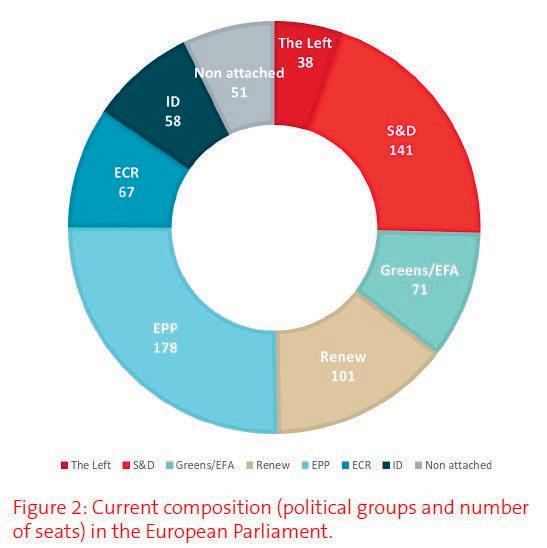
legitimacy.
“In the absence of effective rules to protect this year’s electoral integrity, EU policymakers should at the very least closely monitor the elections,” Quaritsch states. “This could provide more evidence on prevailing risks and the necessity of reforms to ensure that changes are made in time for 2029.”
In addition to her policy fellow role, Quaritsch also serves as a doctoral researcher in political science at the Free University of Berlin. Her expertise lies in European integration, EU institutions, and democratic
The lead author on this compelling and timely policy brief, Quaritsch is well-positioned to provide an authoritative analysis on the tectonic shifts that may be on the horizon for the European Parliament and broader EU policymaking after the impending elections.
As she bluntly concludes: “The 2024 European Parliament elections will have significant implications for the future of the bloc.” With populist forces on the march, continued integration or reform stalling, and the continent facing economic headwinds, Quaritsch’s paper serves as a critical road map for navigating this pivotal electoral juncture for the European project. ■
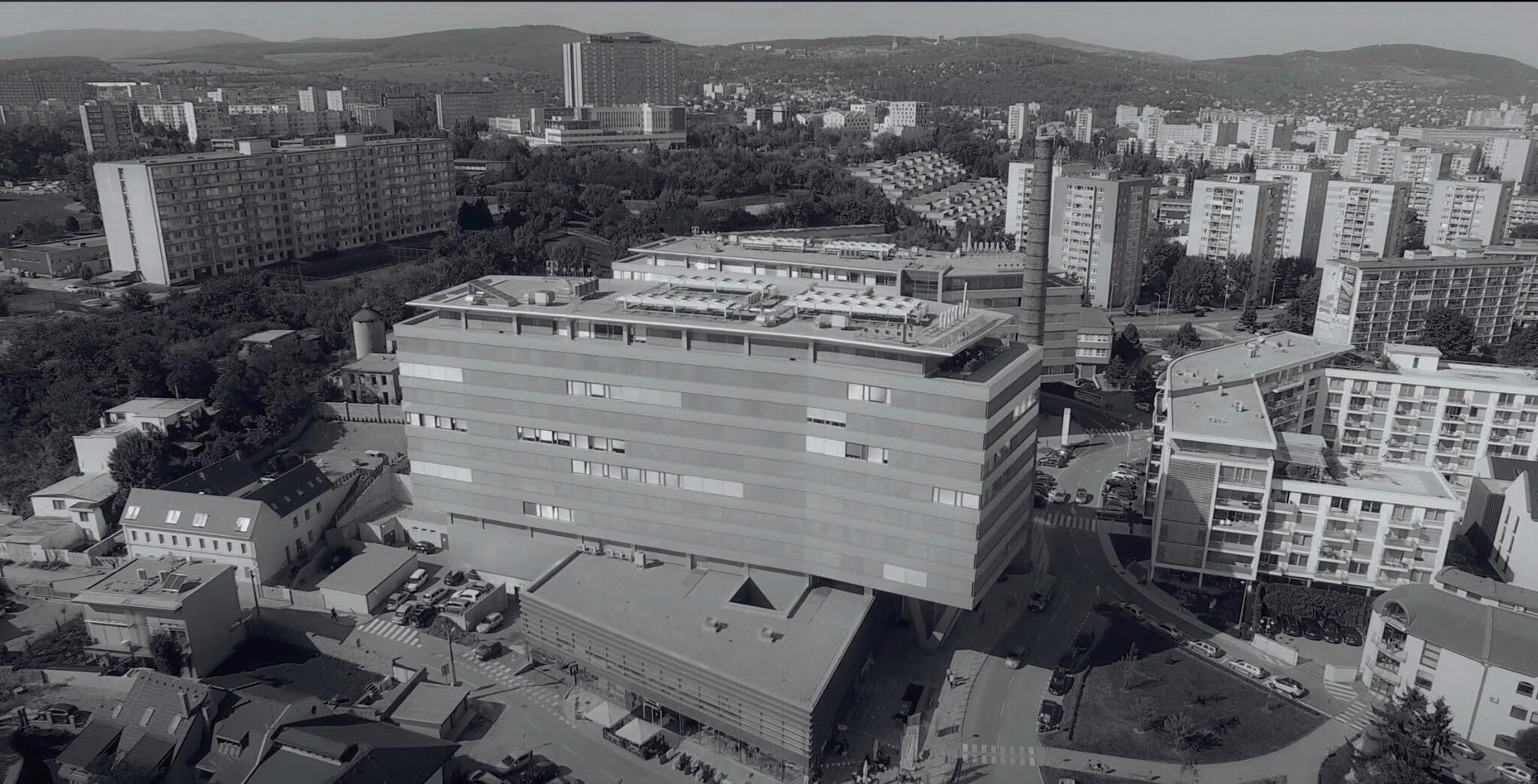
Nestled in the heart of Eastern Slovakia, the city of Košice is not just a historical marvel but a beacon of modernity and innovation. With the launch of the Košice 2.0 project, the city has embarked on a transformative journey, leveraging the power of open data to revolutionize urban living and governance. This initiative, a beacon of smart city transformation, has placed Košice at the forefront of urban innovation, setting a benchmark for cities worldwide. Here our take outs from the interview that Anna Koželnik did with Michal Hladký for “Democracy Technologies”:
Košice’s journey towards becoming a smart city is deeply rooted in its rich cultural heritage and recent advancements in the cultural and creative industries. The city’s designation as the 2008 European Capital of Culture, followed by its inclusion in the UNESCO Creative Cities Network, has catalyzed significant development. These accolades have not only elevated Košice’s cultural stature but have also paved the way for innovative projects like Košice 2.0, funded by the Urban Innovative Actions initiative. The project’s focus on contemporary cultural heritage reflects a forwardthinking approach to leveraging the city’s vibrant cultural landscape as a foundation for urban innovation.
At the core of Košice 2.0 is the development of an open data portal, a pioneering initiative that marks Košice’s first foray into making city-collected data publicly accessible. This portal is not just a repository of information but a gateway to innovation, transparency, and improved public services. By
consolidating data across various sectors, from demographics to environment, the portal empowers businesses, researchers, and the general public to harness information for creative solutions, research, and development.
Understanding the pivotal role of the private sector in re-utilizing open data, Košice 2.0 has meticulously designed an acceleration program to bridge the gap between municipal challenges and private innovation. This unique approach not only fosters a collaborative ecosystem but also positions the city as a testing ground for new products and services, driving economic growth and technological advancement.
Parallelly, the project places a strong emphasis on educating the populace and public administration workers on the nuances of open data. Through comprehensive educational programs, Košice 2.0 aims to cultivate a data-literate society capable of leveraging information for community benefit, innovation, and governance. This initiative not only democratizes data but also empowers individuals with the skills to interpret and utilize information effectively.
The journey of Košice 2.0, however, has not been without its challenges. Issues such as data quality, institutional reluctance to share information, and navigating GDPR compliance have posed significant hurdles. Yet, the project’s resilience and innovative strategies have turned these challenges into opportunities
for learning and improvement, setting a precedent for how cities can overcome barriers to open data initiatives.
Reflecting on the project’s journey, the recommendations for cities considering similar initiatives are clear: embrace transparency, prioritize data accessibility, and foster a culture of innovation. Košice’s experience underscores the transformative potential of open data projects in catalyzing a cultural shift towards more innovative, responsive, and transparent governance.
As Košice continues to evolve through the Košice 2.0 project, it serves as a model of urban excellence, demonstrating the transformative power of open data in addressing urban challenges, enhancing public services, and fostering a culture of innovation. The project’s holistic approach, encompassing participation, education, and collaboration, highlights the multifaceted benefits of open data initiatives, from economic growth and technological advancement to improved decision-making and public engagement.
The success of Košice 2.0 has farreaching implications, offering valuable insights and lessons for cities worldwide. In an era where data is increasingly recognized as a critical asset for urban development, Košice’s journey illuminates the path
for other cities to harness the power of open data for the betterment of society. The project exemplifies how cities can become more responsive, efficient, and innovative by embracing the principles of transparency, collaboration, and public participation.
The legacy of Košice 2.0 extends beyond its immediate achievements, setting the stage for ongoing innovation and development. The project has not only transformed Košice into a smart city but has also instilled a culture of curiosity, courage, and innovation within the municipality and its citizens. As the project continues to evolve, its impact on urban governance, public services, and community engagement is a testament to the power of open data in shaping the cities of the future.
The Košice 2.0 project stands as a beacon of innovation, showcasing the transformative potential of open data in urban development. Through its comprehensive approach to addressing urban challenges, engaging the ecosystem, and navigating barriers, Košice has laid a blueprint for cities worldwide to follow. As we look towards an increasingly data-driven future, the lessons from Košice offer a roadmap for leveraging open data to foster innovation, improve public services, and enhance democratic governance. The city’s journey from a historical marvel to a modern-day innovator is a powerful narrative of how urban areas can harness the power of information to create smarter, more responsive, and more inclusive communities. ■

Jan Leonid Bornstein / Paris.
In France, a bill on what they call “cultic deviances” has been under discussion for several months, and after being entirely rejected by the French Senate, was passed into law in a final vote by the National Assembly on April 9. This controversial text has created an outcry among defenders of freedoms.
The bill creates new offenses related to “cults”. One of these would be the offence of “psychological subjection”, a crime akin to “mental manipulation”. The problem is that not only has the European Court of Human Rights already ruled that “there is no generally accepted and scientific definition of what constitutes ‘mind control’”, but more generally, that such a concept has been considered pseudo-scientific by the most prestigious professional psychology organizations, such as the American Psychological Association since 1987.
The text’s detractors believe that in a family context, for example, a child who, ten years after coming of age, blames his parents for having used repeated pressure to alter his judgement and make him choose a career he didn’t want, which he (and his psychiatrist, why not?) believe caused him serious psychological problems, could sue his parents on the basis of the text.
The same goes for a Christian believer (or any other believer for that matter) who might be considered by an atheist or scientistic militant as a
victim of psychological subjection, because the latter wouldn’t understand how anyone could “let themselves be fooled by such nonsense”. And the day the believer loses his faith, there’s nothing to stop him, afterwards, claiming that he was indeed a victim of psychological subjection and missed out on his life, even if he had chosen Christianity perfectly voluntarily in the first place. The same applies to relationships, where, in the event of a painful break-up, one of the two former partners could claim to have gone through hell with the other solely because he or she was under the other’s psychological subjection, and that this caused him or her serious psychological problems, even in the absence of violence, harassment or any other objective damaging fact.
The demonstration could be the same in all areas of life: techniques for altering judgment are in daily use in human societies. Seduction, rhetoric and marketing are all techniques used to alter judgment. In the army, at work, in sport, in philosophical societies, in politics, and so on. In Italy, before the law on psychological control was abolished in 1981, a homosexual man was sentenced to prison for “psychologically subjugating” his lover, who had never complained about his love.
The French Senate, in rejecting the text, felt that it was dangerous for civil liberties and could not be passed as it stood. But the government persisted.
A new offence of provocation to abandon care
The second offence created by the bill is “provocation to abandon care”. The French Conseil d’Etat, which had been asked for its opinion by the government before the legislative debates began, considered this article of the bill to be dangerous. In its opinion on the bill, issued on November 9, 2023, the Conseil d’Etat considered that this article did not “guarantee a balance between constitutional rights, in particular so as not to jeopardize the freedom of scientific debate and the role of whistle-blowers by criminalizing challenges to the current state of therapeutic practices. It considers that, insofar as they aim to prevent the promotion of so-called “unconventional” healthcare practices in the press, on the internet and on social networks, such provisions constitute an infringement of the exercise of freedom of expression.”
The Conseil d’Etat therefore advised the government not to include this article in the bill. This advice went unheeded by the government
A problematic text in terms of freedom of religion and belief
More generally, it is the entire text that has been criticized by defenders of religious freedom. In a letter addressed to French senators in December, the Dean Emeritus of St. Peter’s Cathedral in Geneva, William McComish, wrote:
“I have to say that this bill is a source of concern for me, and for many of my fellow believers, just as it must be for anyone who is even remotely religious
or spiritual.
First of all, expressions like “cultic” or “cults” to describe religious groups, whether you like them or not, whether you agree with their theology or not, should be avoided. I don’t think it’s lost on you that Protestants have long been considered “cults”, and persecuted as such. They still are in some countries. But the truth is, there’s no religious group that isn’t considered a “cult” somewhere, and persecuted as such.
Of course, crimes and abuses must be condemned, but these can exist independently of any ‘cultic’ stigma. The ‘great’ religions have their share of aberrations, and in the end, the crimes and misdemeanors we might accuse religious people of must be the same as those we might accuse politicians, or any other citizen. A crime is a crime, without the need for cultic opprobrium. In fact, if it is necessary to add the qualifier ‘cultic’ to make it a crime, it may be that the elements of the crime are not in fact constituted”.
It’s true that France has a heavy history when it comes to freedom of religion and belief, and their “anti-cult” policy is certainly the most obvious demonstration of their problem with this fundamental freedom.
By stigmatizing beliefs, and discriminating against citizens on the basis of their beliefs, France has long been at odds with democratic countries where freedom of conscience prevails. ■
THE ECB MAINTAINED INTEREST RATES AT 4.5% BUT SIGNALED A LIKELY RATE CUT IN JUNE, MAKING IT THE FIRST MAJOR CENTRAL BANK TO EASE POLICY. DECLINING INFLATION AND WEAK GROWTH ARE PRESSURING THE ECB, THOUGH SOME POLICYMAKERS PREFER TO PAUSE CUTS. THE ECB MUST BALANCE THE RISKS OF A WEAKER EURO AND IMPORTED INFLATION AGAINST SUPPORTING THE ECONOMY.
As the European Central Bank (ECB) concluded its transition meeting on Thursday, it came as no surprise that the Governing Council decided to keep interest rates unchanged at 4.5% - the highest level since 2001. However, ECB President Christine Lagarde’s remarks have set the stage for a potential interest rate cut as early as June, making the ECB the first major central bank to do so within the developed economies.
The decision to maintain rates was widely expected, but Lagarde has been actively laying the groundwork for a rate reduction in the coming months. Since the March meeting,
Lagarde has been signaling the possibility of a rate cut in June, a move that has now been reinforced following this latest gathering.
The evident decline in inflation and the weak economic growth have been mounting pressure on the ECB to ease the cost of borrowing.
In fact, some voices within the Governing Council have already expressed their preference for a rate cut this Thursday, but Lagarde opted to wait a little longer, stating that the central bank is not committing to a specific path for interest rates in advance.
The latest inflation data in the eurozone has provided fertile ground for the ECB to shift its monetary policy course. The inflationary spiral that followed the economic lockdown due to the pandemic, coupled with the skyrocketing energy prices caused by the onset of the Ukraine war, had triggered an unprecedented series of rate hikes, starting in July 2022 and reaching the 4.5% level last September.
Now, inflation appears to be convincingly deflating in the eyes of the ECB, approaching the 2% target in a manner that the central bank deems broad-based and sustainable,
Lagarde has insisted that the decline in inflation will not be linear and will record fluctuations mainly caused by energy prices.

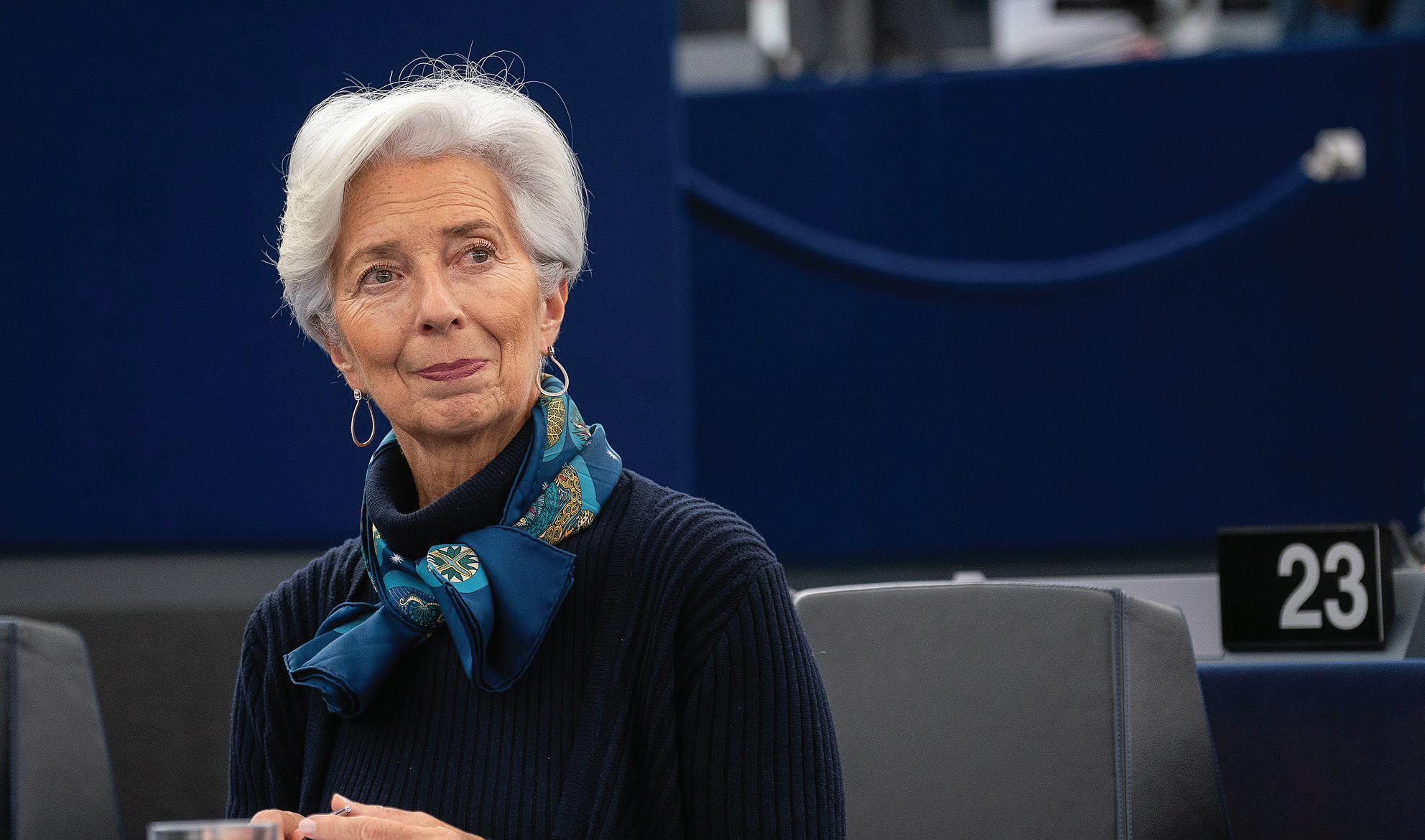
rather than a fleeting phenomenon. In March, prices in the eurozone grew at an annual rate of 2.4%, a tenth of a percentage point less than in February. Additionally, the underlying inflation rate also showed an encouraging decline, from 3.1% in February to 2.9% the following month.
“Inflation has continued to moderate, thanks to the decline in food and goods prices,” the ECB stated in its communiqué. The central bank added that if the three key variables it monitors to decide on rate cutsthe inflation outlook, the underlying inflation rate, and the transmission of its monetary policy -strengthen the confidence that inflation is heading towards the target in a sustained manner, “it would be appropriate to reduce the current level of monetary policy restriction.”
This new wording from Lagarde points to June as the likely timing for a rate cut. According to Felix Feather, an economist at abrdn, the ECB “did not surprise by keeping interest rates unchanged for the fifth consecutive time. As expected, the institution laid the groundwork for an imminent easing cycle by adjusting its monetary policy communication. This decision confirms that, barring major economic surprises, the ECB is on track to apply a cut at its next meeting in June.”
However, the central bank does not want to leave any loose ends and warns that “domestic inflationary pressures remain strong and keep service price inflation at elevated levels.” At the March meeting, Lagarde had already indicated that there would be many more elements in June to decide on a rate cut than at this April gathering. The most relevant factor is the rise in wages, which will be known on May 23 and is a key indicator to see if the inflation in the services sector has also cooled down.
In the minutes of that March meeting, the Governing Council already agreed that the decline in inflation could be “more uncertain, slow, and bumpy” than expected, and reality is in fact leaving new elements of concern. Lagarde has insisted that the decline in inflation will not be linear and will record fluctuations mainly caused by energy prices. Faced with uncertainties, the ECB reiterates that “the Governing Council will continue to take a data-dependent approach and decisions will be taken at each meeting, without committing in advance to a specific path for interest rates.”
The price of oil, which seemed to be a concern already buried for the ECB, is rebounding and has gone from $75 a barrel in December to the current $90. Geopolitical tensions and the
dynamism of demand are contributing to the rise in its price. This is a factor that does not threaten the most likely scenario of a rate cut in June, but it does affect the subsequent path of interest rate reductions. In fact, the major debate the ECB will face in the coming months will be the pace at which it will normalize its monetary policy, with almost anemic growth in the eurozone.
The debate between hawks and doves within the ECB, which has been raging for months over how much growth to sacrifice in favor of inflation control, has erupted at this Thursday’s meeting. It was not a routine Governing Council session, as some members (“few,” according to Lagarde) have already expressed their preference for an initial rate cut, confident enough in the evolution of inflation to lower rates. But the representatives of northern Europe have already expressed their preference for pausing the cuts during the summer, as evidenced by the governors of the Netherlands and Germany.
Additionally, the financing conditions in the eurozone will inevitably be influenced by the decisions of the US Federal Reserve, despite Lagarde’s insistence that the ECB is independent in its decisions. “We are not dependent on the Fed. We do not speculate on what other central
banks will do,” she assured. The reality is that the inflation data in the US, known on Wednesday, has been a cold shower on the cycle of rate cuts that households and businesses were expecting. Prices in the US are not faltering, and the March CPI stands at 3.5% year-on-year, still far from the 2% target, which is starting to freeze the market’s expectations of cuts by the Fed this year.
Cutting rates before the Fed also poses a new challenge, especially if the US easing is delayed over time. This gap in the monetary policy of the Fed and the ECB promises to strengthen the dollar and weaken the euro, which has already lost nearly 3% so far this year and is retreating to November levels, at $1.073. The ECB forecasts eurozone growth of only 0.6% this year, and a weaker European currency implies a higher cost in purchasing energy, denominated in dollars, and a new inflationary factor due to more expensive imports..■
















 By Willy Fautré.
By Willy Fautré.
Brussels correspondent. Former chargé de mission at the Cabinet of the Belgian Ministry of Education and at the Belgian Parliament. He is the director of Human Rights Without Frontiers (HRWF), an NGO based in Brussels that he founded in December 1988.
During the years spanning 2019 to 2022, a group of 170 believers in the religious minority, the Ahmadi Religion of Peace and Light, faced severe religious discrimination at the hands of Swedish authorities.
The Ahmadi Religion of Peace and Light (not to be confused with the Ahmadiyya Community founded in the 19th century by Mirza Ghulam Ahmad within a Sunni context, with which it has no relations) is a new religious movement that finds its roots in Twelver Shia Islam.
The Ahmadi Religion of Peace and Light, established in 1999, has faced grave persecution in Muslim majority countries due to its progressive beliefs. Labelled as “heretics” and “infidels,” members have endured imprisonment, torture, and targeted attacks in Muslim-majority countries for their inclusive stance on homosexuality and alcohol, belief that the headscarf is not mandatory and that the true location of the Kaaba is in Petra (Jordan), not Saudi Arabia. The release of their gospel “The Goal of the Wise,” authored by the head of the religious group, Aba AlSadiq, escalated state-sponsored persecution in countries like Algeria, Iran, Iraq, Egypt, Malaysia and Turkey, prompting intervention from human rights organisations, UN bodies, Amnesty International and Human Rights Without Frontiers. Additionally The United States Commission on International
Religious Freedom (USCIRF) has also documented their persecution. Human rights abuses were also highlighted in a discussion at the European Parliament.
The Ahmadi Religion of Peace and Light first welcome in Sweden
The faith was already officially registered under the name of the Ahmadi Religion of Peace and Light with the relevant government body in Sweden in 2018. Its property was legally registered and obtained an organisation number from the Swedish Tax Agency.
The group declared that it would use the facility for services falling under tax code section number 94.910 which is titled “Activities of a Religious Community”.
The property, located in a serene landscape was used exactly for that purpose. It was frequented by men, women, and children and provided summer retreats, youth activities and computer training courses for its members. It also offered meditation classes, religious education, English, Arabic and Swedish language courses. It was used as a house of worship as any church, temple, synagogue or mosque.
In 2019, the Ahmadi Religion of Peace and Light suddenly started to encounter a relentless campaign of harassment by the Swedish Police Authority, clearly aimed at impeding its establishment within the country.
These operations targeted both the religious community itself and its members, with the clear objective of dismantling its presence.
Reports revealed collaborative “Statements like this were efforts between not only invalid but also the Police Authority profoundly harmful to the and other reputation of the religious governmental community” bodies like the Migration Agency, the Tax
Agency, and the Enforcement Authority, branding the faith as unwelcome in Swedish society. This campaign of persecution by the Swedish government started after unfounded and unproven allegations from some disgruntled ex-members and accusations from Islamic extremists who wished to destroy the group.
As Sweden is known to be open to asylum-seekers persecuted in their country of origin, some scholars in religious studies who know this religious community and have examined the list of documented incidents are very perplexed by the strange behaviour of the Swedish authorities.
Some think that the Swedish institutions in charge of national security may have received an (unfounded) warning from a Muslim majority country hostile to this new liberal Muslim movement which is against any form of violence and whose values are in line with Western values.
The first incident of police harassment towards the faith occurred in Bergslagsgarden on September 10, 2020, when over 20 police officers descended upon the faith’s premises, accompanied by a fleet of over seven police vehicles and a contingent of SWAT officers clad in combat gear.
The sudden and overwhelming police presence shocked and terrified the families present, including children, who were then confined to the property by the police force. Despite requests for explanation and a search permit, the police failed to provide any legal document.
Members were detained and access to various areas of the property was restricted without reason. This resulted in the fact that several parents were unable to pick up their children from school and a number of them, as young as 7-8 years, were left unsupervised on the school grounds for over an hour.
The police did not find any evidence of illegal activity and withdrew without arresting anyone,

interviewing anyone or even fining anyone. No reason was ever given for their operation.
On November 18, 2020, the community was met by yet another unanticipated arrival of four police officers, accompanying Fire Safety Inspectors. Despite objections raised by members, who recalled the previous encounter, the police officers persisted in escorting the inspectors onto the premises.
No breach of the fire regulations was discovered. It can reasonably be presumed that the presence of the police was meant to immediately close the premises of the religious centre if the law had not been respected.
In both of the raids the police found nothing suspicious or illegal and did not conduct a single interview.
In parallel, other harassment operations were carried out.
On May 14, 2020 British citizens Fawad Haider and Ali Abbas found themselves at the receiving end
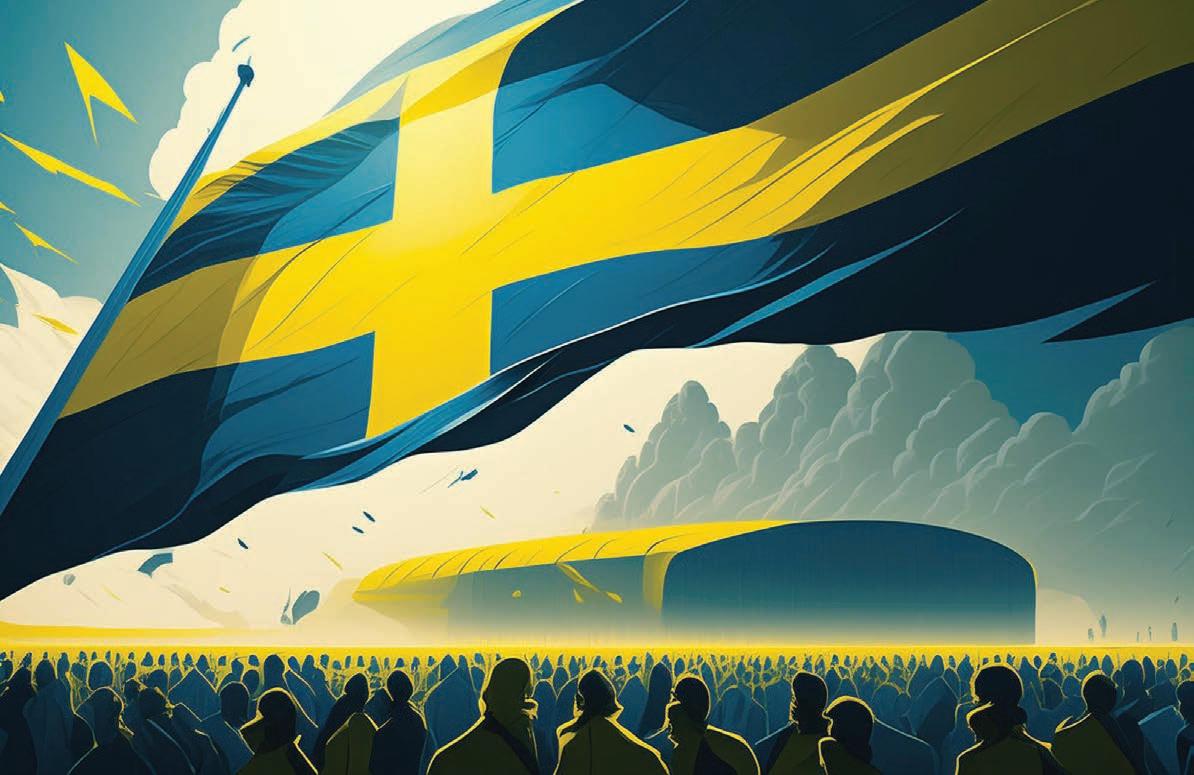
of police aggression during a routine traffic stop in the Örebro region. Despite complying with identification requests, their car window was violently shattered. They were detained and questioned but were eventually released without charge or explanation.
On January 11, 2022 Swedish police conducted raids on the residences of Ahmadi religion members who were US citizens, resulting in emotional distress for those involved, including mentally disabled children. No evidence of any illegal activity was uncovered.
On April 11, 2022 under false pretences, UK citizen Kalsoom Shah and her daughter Duae Zahra were summoned to the Örebro police station. The mother and daughter were separated and interrogated while their lawyer was prevented from being present. They were asked intrusive questions about their beliefs and 17-year old Dua was even offered an option to leave her family, which she declined.
On June 14, 2022 Guillaume Ballet, Ali Haider, and Lela Lotfi -Swiss,
British, and Egyptian citizens -were stopped in traffic by two undercover cars, two police vans, and one motorcycle.
The disproportionately large number of police vehicles was suggestive of a planned yet unwarranted ambush of the group. They were forced to abandon their vehicle leaving it unlocked and unattended. Guillaume Ballet and Ali Haider were detained and subjected to degrading and humiliating body searches, prolonged interrogations and psychological pressure. Nothing illegal was discovered. Lela Lotfy was left in a field 11 kilometres away from her residence and with no transportation or means to contact anyone. Guillaume Ballet and Ali Haider were forced to take a drug test.
The results were negative.
The Ahmadi Religion of Peace and Light considers that the rights of their members, guaranteed by the Swedish Constitution and the European Convention on Human Rights, have been seriously and repeatedly violated. In all the
aforementioned cases, the police operations were unfounded, unnecessary and disproportionate.
Despite residing in Sweden legally, all members of the Ahmadi Religion of Peace and Light encountered significant obstacles when applying for residency. However, following the UK’s Brexit, the residency status of 69 members with British citizenship was adversely affected.
Numerous members faced rejection of their applications by the Swedish Migration Agency under controversial circumstances.
For example, in November 2020, the applications of spouses and children of four employees of the Ahmadi Religion were unjustly rejected.
Legal appeals ensued, with migration lawyer Julia Högberg expressing shock at the lack of legal grounds for the initial rejections. While subsequent court rulings overturned some decisions, the
prolonged legal battles drained resources and morale, prompting many members to relocate to the United Kingdom.
On April 29, 2023, the Swedish Radio released an interview with the head of the Police Intelligence Service in Bergslagen, Mr. Per Lundbäck. In the interview, he revealed that the Police had worked with the Migration Agency, the Tax Agency and the Swedish enforcement authority to dismantle the Ahmadi Religion and expel its members.
He described the religious group as a “cult” that they “did not want in their vicinity”. It was then decided to shut down the faith community in Sweden because they had “a feeling” that something was not right.
Additionally, businesses operated by members of the faith that were positively covered in local news in Sweden were described by the chief of police in the radio interview as a “sham.”
Statements like this were not only invalid but also profoundly harmful to the reputation of the religious community whose members are already bearing the brunt of persecution in Muslim-majority countries.
Consequently, due to the actions of the Swedish police, the businesses and lives of many members of the faith in Sweden were ruined and uprooted for no valid reason. The statements of Police Chief Per Lundbäck are alarming on many levels as they are a blatant confession by the Swedish authorities that several of its government bodies engaged together in an unfounded and illegal act of direct discrimination against a religious minority and its members, such as the rejection of residency applications, which is unlawful and unconstitutional.
As a conclusion, the interview suggests that the Police Authority has actively worked to find “something” that could justify the termination of the faith’s activities in Sweden, seemingly based on a pure “feeling.” ■
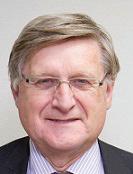 By Willy Fautré.
By Willy Fautré.
Brussels correspondent.
Former chargé de mission at the Cabinet of the Belgian Ministry of Education and at the Belgian Parliament. He is the director of Human Rights Without Frontiers (HRWF), an NGO based in Brussels that he founded in December 1988.
During a recent visit to Brussels of Alona Lebedeva, the head of the industrial Aurum Group, I had the opportunity to meet and interview her about her professional career and her commitment to help Ukrainian children
Alona Lebedeva was born in 1983 in the city of Yaroslavl, 250 km northeast of Moscow, at the time of the Soviet Union. The country was then under the short rule of Yuri Andropov (November 1982 – February 1984) who was to be followed by Konstantin Chernenko for a short period (February 1984 – March 1985). It is mainly under the rule of Mikhail Gorbatchev, characterized by his glasnost and perestroika policy, that Alona Lebedeva spent her childhood in
the Soviet Union.
Early in her youth, she dreamt to be an independent woman who would take her own life in her own hands. When she was in the 9th grade, she decided that one day she would move to Kyiv and she prepared for it. She loved literature, read books night after night, wrote articles, poems and fiction works. Her first dream was to enroll in journalism because she wanted to drive, to travel, to write reports from hot spots. But later on, after having soberly evaluated and weighed all the pros and cons, she decided to follow another orientation: diplomacy combined with economics.
In 2000, she graduated with honors from Secondary School No. 3 in Chernivtsi. She went to Kyiv and enrolled in the National Taras Shevchenko University, Institute of International Relations, Department International Economic Relations. Travelling abroad and gaining experience was the next step in her life: an internship in a consulting company in Austria in 2001 and several internships in Ukraine. She graduated in 2006 in international

economic relations. She then became the financial director of the Inter Car Group (ICG) for which she had previously worked during her studies as a trade agent and afterwards as a sales manager.
In 2009, she bought all the shares of ICG which she renamed Aurum Trans in 2016. Soon afterwards, she created the Aurum Group in Kyiv, which is now a large corporation grouping together over 20 big enterprises. A number of them produce railway wagons, are engineering businesses, chemical plants, agricultural enterprises, etc. Alona Lebedeva is now the major owner of it.
Q.: When was the “Charity Foundation of Alona Lebedeva Aurum” founded and why did it first start with the assistance to children in need of medical treatment?
A.L. The idea of helping children first started in my mind on a Christmas Eve. While scrolling Facebook I found an article about a new born baby whose parents were asking for financial support for surgery. What impressed me a lot is that in the support letter, it was written «For someone, getting a new Iphone for Christmas is the most important thing and for the another, that amount of money will safe a life.»
On the next day,I covered all expenses for the surgery of the baby and now he is a healthy and cheerful boy.
The real starting point of a charity foundation was an incident in my professional environment: the emergency transfer of the 7-year-old grandson of one of our employees to the Kyiv City Children’s Clinical Infectious Diseases Hospital. Our Ukrainian doctors who receive
a very small salary, are underequipped and work in conditions that mostly do not meet modern require with an incident, could not guarantee that they would be able to save the child but they managed it.
So by chance, having plunged into the problems of one clinic, we decided to systematically help modernize children’s municipal hospitals. In 2017 we registered the “Charitable Foundation of Alona Lebedeva Aurum” and began repair work. Of course, our first object was the Kyiv City Children’s Clinical Infectious Diseases Hospital, where they saved the life of our employee’s grandson but the amount of work is still extremely large and without the help of benefactors, it is difficult for the state to do it alone.
Q.: What were your first projects?
A.L.: I will give you a few highlights of the activities of our foundation which you can also find on our website with a lot of photos. In 2017, we renovated three boxed wards in the department for the treatment of children with infectious diseases of the nervous system of the Kyiv City Children’s Clinical Infectious Hospital. In all wards, the premises were renovated, new bathrooms were installed, new beds and cabinets for individual use were purchased.
In 2018, our foundation carried out repairs in the Kyiv City Children’s Clinical Hospital No. 1. The surgical ward was renovated, new windows were installed, decorative repairs were made; doors, lamps, and a sink were replaced; functional beds and new mattresses were purchased. The shower room was fully equipped: the water pipes have been replaced, the walls and floor have been decorated with ceramic tiles, three showers and a bathtub have been installed.
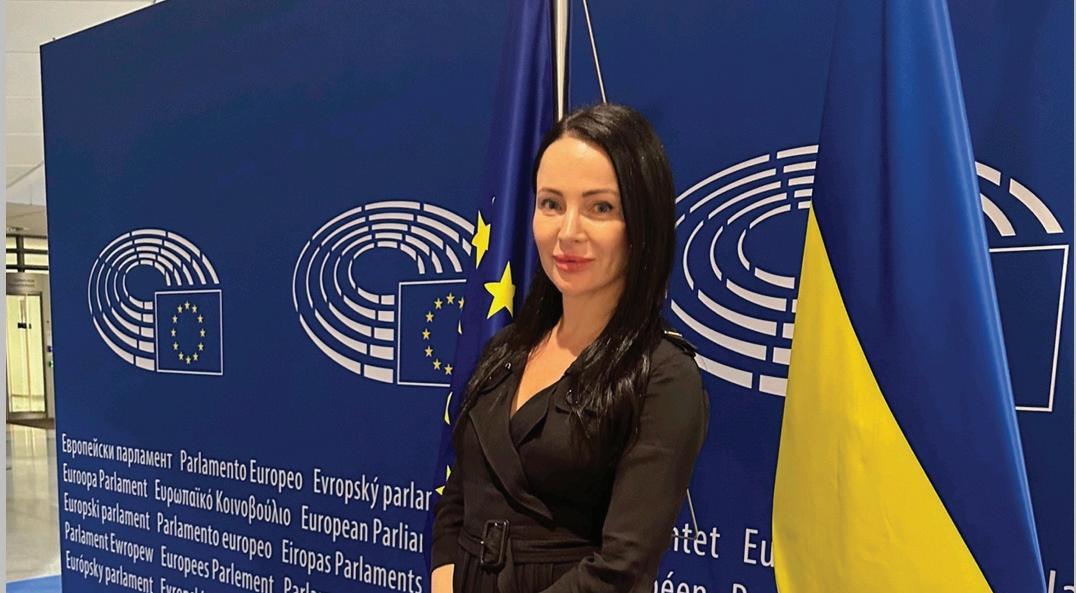
In 2019, our foundation quickly helped to purchase consumables that were needed during an emergency operation on the brain of a small child. And the baby was saved!
One year later, together with the All-Ukrainian Charity Organization “Mother and Baby”, we purchased and delivered express tests for coronavirus and respirators to children’s hospitals in Kyiv.
Three years ago, funds were allocated to the parents of little Dominika for her medical treatment. Her family owns a plot of land that was leased by one of the Aurum Group agricultural enterprises.
Q.: Two years ago, Russia aggressed Ukraine, is now occupying a part of its territory and goes on waging its war against your country, shelling cities, housing, schools, hospitals… What has been
the impact of the war on the humanitarian activities of the Aurum Group?
A.L.: The war has dramatically impacted our usual humanitarian activities as we had to broaden the scope of our initial objectives.
When the full-scale invasion war started in February 2022, all the enterprises of the Aurum Group actively helped their communities and the military 24/7. They contributed to the delivery of bread and flour to residents of border villages.
We purchased and handed over five vehicles needed by the army, including an ambulance. One of the cars went to the military from the 93rd brigade of Cold River. We provided one of the units of the Armed Forces with a portable solar power plant. We delivered food kits to civilians, the Armed Forces and rescuers in the war zone.
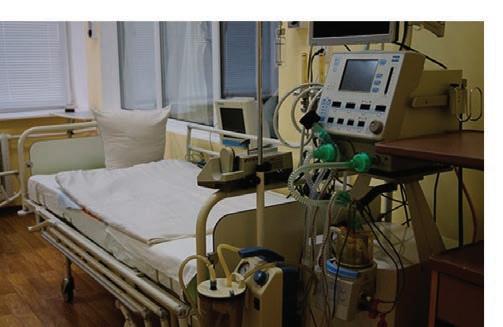
We gave the border guards reinforced concrete blocks, necessary for strengthening the border with the aggressor country, staples and anti-tank hedgehogs.
We received warm thanks from the 5th detachment
of the State Border Guard Service (DPSU) for our contribution to strengthening the security of the state border, our fruitful cooperation in the fight for territorial integrity and the independence of Ukraine.
More than 1,000 slab carriers were also handed over, 200 of which were with slabs, for a total amount of over UAH 2.5 million. During the year, we held many events sponsored by the enterprises of the Aurum Group and we were hereby able to cover the needs of waste disposal in the regions for a total amount of over UAH 3 million.
Q.: Didn’t your usual civilian health projects suffer from your prioritizing war-related assistance?
Of course, we did not interrupt those medical projects. For example, in 2022, we sent two batches of the lifesaving drug Euthyrox to patients of several institutes of endocrinology in Ukraine. Also, in cooperation with other charitable foundations, we supplied medicines to the KP Kryvorizky Oncology Dispensary.
medicine in Europe.
We financially supported a children’s sleep laboratory which was launched for the first time in Ukraine.
Since the beginning of the war, most of our assets have been under occupation. The rest of them are unprofitable but constant funding is required, Although, of course, the volume of financial support has

significantly decreased, I have not closed our charitable projects.
We have also founded a charity foundation in Brussels to help Ukrainian children while they are in Europe. The non-profit organization “Aurum Charitable Foundation” helps Ukrainian children affected by the war gain access to critical
In the first half of 2023, the Aurum Charity Foundation of Alona Lebedeva implemented projects for a total amount of about 2.5 million hryvnias: over 1.9 million hryvnias for the needs of the military, 350 thousand hryvnias for aid to communities and the population affected by the war and another UAH 200,000 for medical care.” ■
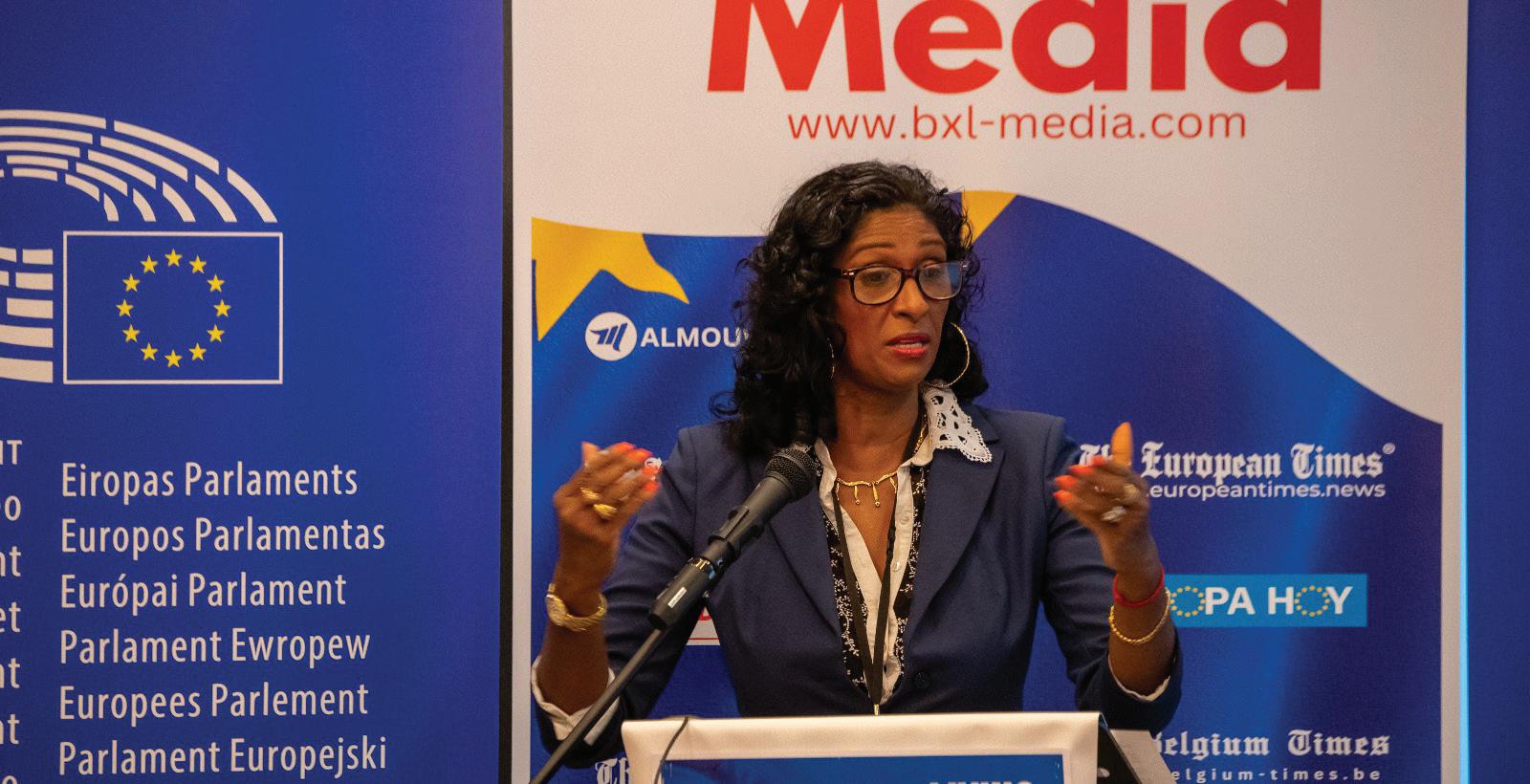
In the tempestuous sea of European politics, it’s not uncommon for dedicated public servants to find themselves at the mercy of misleading narratives. Recently, MEP Maxette Pirbakas, a steadfast advocate for the rights of agriculturers, fishers, and the principles of religious freedom, has been subjected to such undue criticism. A recent publication by “Projet Arcadie,” followed by local media interpretations, has painted a distorted picture of Pirbakas’s contributions to the European Parliament, labeling her as the “last in class.” However, this portrayal grossly overlooks the depth and breadth of her commitment and achievements.
Maxette Pirbakas has issued a detailed statement to address these misleading allegations, emphasizing several critical points that challenge the basis of the criticism levied against her. Firstly, she points out the absence of any “official” rating system for MEPs, highlighting that such rankings are inherently subjective and fail to capture the entirety of an MEP’s parliamentary mandate. Specifically,
these ratings often overlook significant work done outside the plenary sessions, including committee work and crucial efforts made beyond the parliamentary halls.
Pirbakas’s tenure from July 2019 to February 2022 as a member of the Identity and Democracy group, including her time with notable figures such as Jordan Bardella and Nicolas Bay, faced undue political ostracism. This political sidelining severely limited her ability to influence within the hemicycle, a fact conveniently omitted in the critique against her. Furthermore, since becoming a nonattached member, she has faced additional procedural restrictions, yet she has strived to make her voice heard, challenging the methodology used to calculate attendance and participation rates.
Beyond the procedural intricacies of parliamentary work, Maxette Pirbakas’s dedication to her constituents and the broader European community shines through her relentless advocacy for the Outremer regions. From fighting against
budget cuts to the POSEI program that supports ultramarine farmers to engaging in critical dialogues with various ministries, Pirbakas has been a vocal champion for the needs and rights of those far from the continental spotlight. Her efforts to secure commitments on key issues such as the traditional fishing fleet of the Outre-mer, the renewal of the octroi de mer, and the FEDE program underscore her unwavering commitment to addressing the challenges faced by the most vulnerable.
Moreover, her proactive stance on issues like chlordécone exposure and the fiscal treatment of traditional spirits like rum demonstrates a comprehensive approach to her advocacy work.
The critique lodged against Maxette Pirbakas fails to account for the multifaceted nature of an MEP’s responsibilities and the complex dynamics of European Parliament politics. It disregards the tangible outcomes of her tireless work and the profound impact of her advocacy
on behalf of her constituents. As the European political landscape evolves, it’s imperative to recognize the contributions of MEPs like Pirbakas, who navigate the challenging waters of political opposition and procedural constraints to champion the causes that matter most to their communities.
The gratitude expressed by her compatriots in the Outre-mer regions stands as a testament to her effective and dedicated service.
In the face of unwarranted criticism, the resilience and achievements of Maxette Pirbakas remind us of the importance of looking beyond simplistic metrics to truly appreciate the depth of commitment and hard work that defines genuine public service.
As the European Parliament elections draw near, it’s crucial to acknowledge the efforts of those who strive to make a difference, often against significant odds.
Maxette Pirbakas’s record of advocacy and action speaks volumes, far louder than any misguided critique could ever hope to. ■

In the lead-up to the European Parliament elections, a groundbreaking study has emerged as a cornerstone for policy discussions, shedding light on the critical need for enhancing combined transport systems across Europe. Conducted through a meticulous Delphi study and a comprehensive literature review, the research unveils a series of actionable recommendations aimed at revolutionizing European combined transport, making it more efficient, sustainable, and ready to meet the challenges of the 21st century.
Combined transport, the integration of different modes of transport such as rail, road, and waterways, is pivotal for Europe’s economic competitiveness and environmental sustainability. Despite its potential, combined transport faces numerous challenges, including infrastructural limitations, regulatory hurdles, and technological gaps.
The study, spearheaded by M. Gleser and R. Elbert, identifies these obstacles through an extensive Delphi study involving industry experts and a systematic literature review spanning the last decade.
The study’s findings are a clarion call for immediate action, highlighting 27 potential measures across eight broad categories, including policy, infrastructure, digitalization, and market efficiency improvements. Notably, the research emphasizes the importance of fostering European cooperation in the rail sector, establishing digital platforms for data exchange, and creating opportunities for less-than-truckload (LTL) shipments consolidation.
In response to these findings, the study proposes a practice-oriented research agenda, urging European policymakers to prioritize combined transport in their legislative efforts.
The agenda outlines six critical research areas, including the accelerated introduction of central buffer coupling and the introduction of a 10-ft standard container, aiming to simplify operations and enhance the system’s flexibility.
As Europe stands at a crossroads, the upcoming European Parliament elections offer a unique opportunity for candidates to champion the cause of combined transport.
Voters, increasingly aware of the environmental and economic implications of transport policies, are looking for leaders who can articulate a clear, actionable vision for a more integrated, efficient, and sustainable transport system.
Candidates who prioritize the study’s recommendations in their platforms can not only drive the agenda for a greener and more competitive Europe but also demonstrate a commitment to innovative solutions that address both current and future transport challenges. By advocating for policies that align with the study’s findings, MEPs can play a pivotal role in transforming Europe’s transport landscape, ensuring it is robust enough to withstand the demands of the digital age while minimizing its environmental footprint.
The study by M. Gleser and R. Elbert serves as a roadmap for enhancing combined transport in Europe, offering a blend of practical measures and research-driven insights. As the continent gears up for the European Parliament elections, the findings underscore the urgency of adopting a forward-looking approach to transport policy, one that harmonizes efficiency with sustainability.
“THE STUDY’S FINDINGS UNDERSCORE THE URGENCY OF ADOPTING A FORWARD-LOOKING APPROACH TO TRANSPORT POLICY, HARMONIZING EFFICIENCY WITH SUSTAINABILITY.”
The journey towards a more integrated and green transport system is a collective endeavor, requiring the collaboration of policymakers, industry stakeholders, and the European citizenry. By rallying behind the study’s recommendations, Europe can pave the way for a future where combined transport is not just a vision, but a reality, marking a significant stride towards achieving the European Green Deal and reinforcing the EU’s commitment to a sustainable, carbon-neutral future. ■

Acollective of 50 health mutuals from three countries – France, Belgium and Poland – representing more than 30 million Europeans has attended a major event in Brussels today. Co-organized in partnership with scientists, trade union federations, entrepreneurs, international associations, and Members of the European Parliament, the unique gathering is geared to raise awareness and mobilize action around crucial issues relating to asbestos, pesticides, and organic food. This unprecedented conference signals a new chapter in European efforts to protect public health and the environment: its aim is to shield present and future generations from the very real but entirely avoidable dangers posed by asbestos and pesticides. The initiative is being supported by 50 MEPs from across the political spectrum, including
“WE NOW HAVE THE SOLUTIONS TO BRING ABOUT A EUROPE THAT IS 100% ORGANIC IN AGRICULTURE”
Marie Toussaint, Manon Aubry and Sylvie Guillaume.
In recent months, a series of European decisions – such as the abandonment of regulations aiming to halve pesticide use in Europe by 2030, the 10-year extension granted for the use of the weedkiller glyphosate, and the deliberate watering-down of the Green Deal and the ‘From Farm to Fork’ programme – have caused serious concerns for public health. The agrochemical industry and its lobbyists must not continue to compromise our collective future
In Europe, we know that 80% of insects have disappeared over the last three decades, and we know that chronic diseases linked to pesticide exposure are sharply on the rise. Pesticides pollute our air, water, soil, food, and ultimately our bodies, driving what the World Health Organization calls a true “epidemic of preventable chronic diseases.” This is a crucial public health issue.
Around 50 million Europeans suffer from one or more chronic diseases that have been linked to pesticides. Two collective scientific assessments by INSERM in 2013 and then in 2021 revealed that pesticides bear some responsibility for several rapidly increasing diseases, including prostate and breast cancers,
brain tumors and Parkinson’s. And yet today, over 60,000 tonnes of pesticides are used annually in France. Across Europe as a whole the figure is many times higher: in 2021, 355,175 tonnes of pesticides were sold in the European Union.
Asbestos and pesticides: a similar story
The dangers of pesticides are strikingly similar to the dangers of asbestos. Both are known to cause work-related cancers, which come with immense costs of between €270-610 billion each year, representing 1.8%-4.1% of the European Union’s total gross domestic product (ETUI study link conducted in 2017).
But these cancers are preventable – as are the associated costs for the healthcare systems of every EU Member State, if effective prevention policies are implemented.
Asbestos is not a problem confined to the past. Despite the landmark victory achieved with its European trade ban in 2005, there are still hundreds of thousands of tonnes of this deadly mineral in buildings across Europe today. Over the coming years, millions of these buildings will be demolished or renovated, potentially leading to dangerous exposure for the workers involved.
In order to avoid a new wave of asbestos victims, effective preventative measures must be urgently implemented.
“As the myth of controlled pesticide use is increasingly crumbling, good news is emerging. We now have the solutions to bring about a Europe that is 100% organic in agriculture. This exciting new direction will rejuvenate our gastronomy, our public health, and even the health of our planet,” declares Martin Rieussec-Fournier, Coordinator of the Conference at the European Parliament, and representative of Mutuelle Familiale.
Testimony from Isabelle Marchand, member of the Support Collective for Pesticide Victims in the West and mother of Cloé, poisoned by pesticides.
“I am the mother of Cloé, a 14-yearold girl, and we live in St Nolff in Morbihan, in a housing estate in a rural municipality; our garden borders a field cultivated intensively with pesticides. In October 2019, when Cloé was 10, she was diagnosed with acute lymphoblastic leukemia; chemotherapy destroys her


immune system, and we were very concerned about pesticide treatments under her bedroom window.
“We alerted the town hall; no response. I contacted the Collective to remove pesticides from our land. After negotiations with the farmer, we obtained a 70-metre grass buffer strip. Unfortunately, the following summer, the farmer cultivated potatoes with weekly treatments; new anguish. New mobilization with media coverage. We won a ruling mandating that the 8-hectare plot should be cultivated organically.
“In early 2024, Cloé relapses; we don’t understand! In the midst of an agricultural crisis! We’re horrified by the agricultural concessions the government has accepted (the ecophyto pause, etc.), and we’re even more worried about the future and Cloé’s health.”
Given the urgency of the situation we face, more than 40 European mutuals are asking the European Parliament and the European Commission to take six actions:
1. Remove asbestos from schools, gymnasiums and other public buildings in Europe by 2032 and create a European fund to finance asbestos management.
2. Revise the European diagnostic guide to reflect current scientific knowledge and the new diseases
that have been recognized as asbestos-related.
3. Apply European legislation on toxicity assessment before pesticides receive market authorization.
4. Maintain the objective of reducing pesticide use by 50% across the European Union by 2030, as provided for in the SUR regulation.
5. Establish mandatory minimum sustainability criteria in public procurement for food items (including a minimum of 20% organic) at EU level by 2025, including in schools and early childhood care facilities.
6. Implement the INRAE scenario for a 100% agro-ecological Europe without pesticides by 2050, with an intermediate goal of 25% organic farming by 2030.
These proposed actions were conceived with the assistance of the European Federation of Building and Woodworkers (FETBB), Ban Asbestos France, Secrets Toxiques, the Support Collective for Pesticide Victims in the West, and IFOAM (International Federation of Organic Agriculture Movements).
They follow on from those submitted to the Senate on February 5th in Paris.
“We commend this mobilization of mutuals for the health of farmers and of all Europeans, and of the ecosystems on which we depend to produce our food. Given the current context of setbacks and polarization around the need to transition our agricultural model, it is fundamental to reaffirm that the future of European agriculture must involve a phase-out of synthetic pesticides and a clear shift towards agro-ecology. Organic farmers demonstrate every day that it is possible to produce quality food while respecting biodiversity and planetary boundaries, but they need more ambitious and coherent public policies of support.”
Following the conference, a demonstration involving hundreds of people took place in front of the European Parliament to demand a change of agricultural course for the 21st century.
In the wake of the tractor protests in February, the demonstration called for a 100% organic agriculture that respects human health, the planet, and the climate. The vast majority of citizens, including farmers, want a change of model and agriculture without pesticides. They expect Europe to fully embrace peasant agriculture and agroecology.
With the European elections approaching, many of them – farmers, citizens, artists, musicians – joined this beautiful gathering in person, to set out their demands and to make their voices heard.
Cancers, chronic diseases, infertility... The role of pesticides in the emergence of health problems and the disappearance of insects has been demonstrated by numerous scientific works. The aim of this book is to give the public the keys to understand and act on this issue. Pesticides’ origins in fossil fuels are too often forgotten. The absurdity of the evaluation methods used is little known. But this book is not just about denouncing a problem. It is a real call to action, proposing a series of reflections on the most effective ways to act in the past, present, and future. You will find practical solutions for acting and making your voice heard, for defending the right to food free of pesticide residues, and demanding better protection for people and nature.
“We must demand that authorities make decisions that protect future generations. This is the meaning and hope of the Toxic Secrets initiative.” Benoît Biteau, Member of the European Parliament. ■
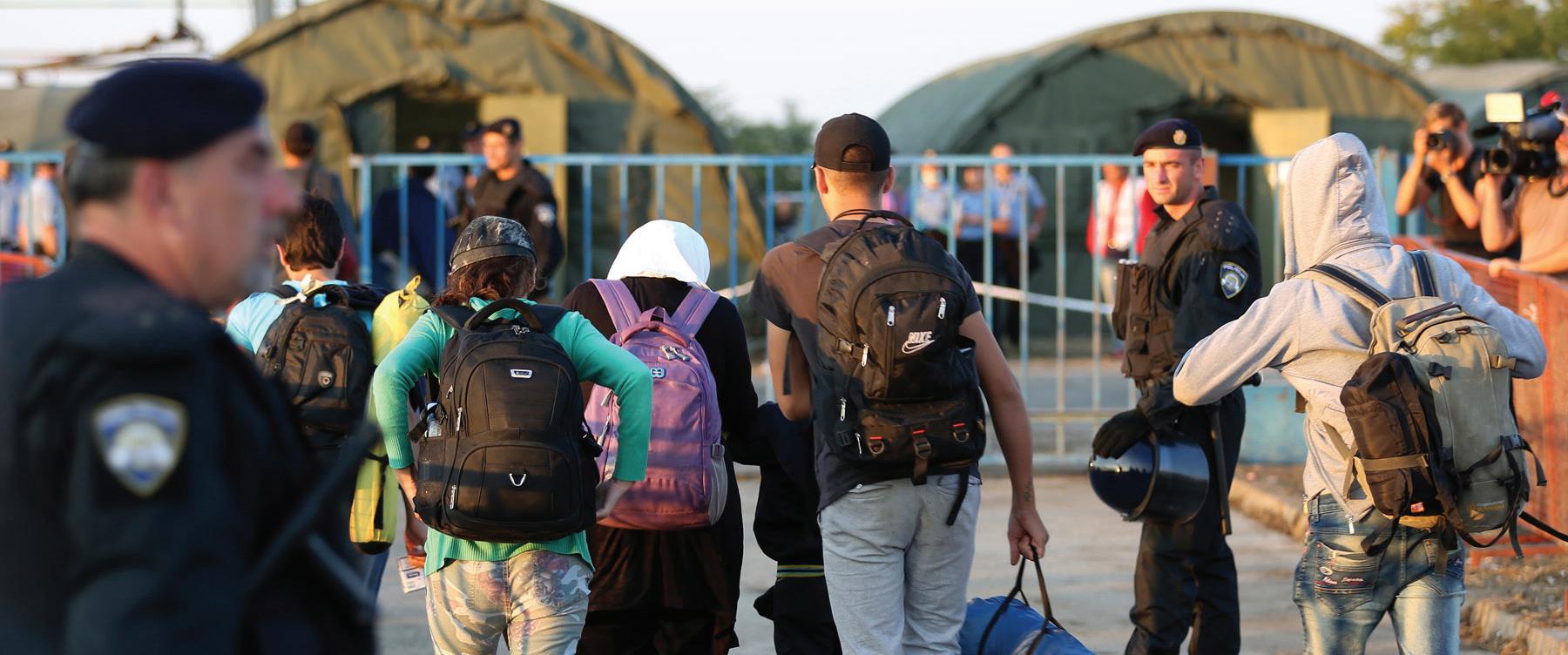
The European Parliament today cover the instrumentalisation of adopted ten legislative texts migrants, i.e. when they are used by to reform European migration third-countries or hostile non-state and asylum policy as agreed with EU actors aiming to destabilise the EU. member states.
The bill, by rapporteur Juan Fernando Solidarity and responsibility LÓPEZ AGUILAR (ES, S&D), was confirmed with 301 votes in favour, In order to assist EU countries 272 against and 46 abstentions. subject to migratory pressure, Find more information on the crisis other member states will contribute situations regulation. by relocating asylum applicants or beneficiaries of international Screening of third-country protection to their territory, making nationals at EU borders financial contributions, or providing People who do not meet the operational and technical support. conditions to enter the EU will be The criteria according to which a subject to a pre-entry screening member state is responsible for procedure, including identification, examining international protection collecting of biometric data, and applications (the so called Dublin health and security checks, during a rules) will also be updated. period of up to seven days. Member The regulation on asylum and states will have to set independent migration management, by monitoring mechanisms to ensure rapporteur Tomas TOBÉ (SE, EPP), the respect for fundamental rights. was backed by 322 votes in favour The text, by rapporteur Birgit SIPPEL 266 against and 31 abstentions. Read (DE, S&D), was endorsed by 366 more about it. votes to, 229 and 26 abstentions. Addressing situations of crisis MEPs also approved new rules for the centralised system on conviction The crisis and force majeure information (ECRIS-TCN), with regulation establishes a mechanism 414 votes to 182 against and 29 to respond to sudden increases abstentions. Read more about the in arrivals, ensuring solidarity and new screening regulation. support for member states facing an exceptional influx of third-country Faster asylum procedures nationals. The new rules will also
A new common procedure will be established across the EU to grant and withdraw
“The crisis and force majeure international protection. regulation establishes a Processing asylum claims at EU borders will in mechanism to respond to future have to be faster, sudden increases in arrivals, with shorter deadlines for unfounded or inadmissible ensuring solidarity and claims.
support for member states
The bill, by rapporteur facing an exceptional infux.” Fabienne KELLER (France, Renew), was adopted by
The Migration and Asylum approved by MEPs. © European Union 2024/Oliver Bunic 301 votes to 269 and 51 abstentions.
For the Border return procedure the “In order to assist EU result was 329 votes to 253 and 40 abstentions. Read more about the countries subject to asylum procedure regulation. migratory pressure, Eurodac regulation other member states will
The data of those arriving irregularly contribute by relocating to the EU, including fingerprints and facial images from six years asylum applicants old onwards, will be stored in or benefciaries of the reformed Eurodac database. Authorities will also be able to record international protection if someone may present a security to their territory, making threat or was violent or armed. fnancial contributions, or The text, by rapporteur Jorge BUXADÉ VILLALBA (ES, ECR), was adopted with providing operational and 404 votes to 202 and 16 abstentions. technical support.” More details about the new Eurodac rules are available here.
Qualifications standards
and health care. Registered asylum Parliament also backed new uniform applicants will be able to start working standards for all member states at the latest six months after filing the for the recognition of refugee or request. The conditions of detention subsidiary protection status, and and the restriction of freedom of regarding the rights granted to those movement will be regulated, to qualifying for protection. Member discourage applicants from moving states should assess the situation around the EU. in the country of origin based on information from the EU Asylum The act, by rapporteur Sophia IN ‘T Agency and refugee status would VELD (NL, Renew), was approved by be reviewed regularly. Applicants 398 votes to 162 and 60 abstentions. for protection will have to remain Read more about the reception on the territory of the member state conditions directive. responsible for their application or in which the protection was granted. Safe and legal way to Europe
Steered by rapporteur Matjaž NEMEC Under a new framework on (SI, S&D), the text was endorsed with resettlement and humanitarian 340 votes to 249 and 34 abstentions. admission, member states will, on a Read more about the qualifications voluntary basis, offer to host UNHCRregulation. recognised refugees from third countries, who would travel to EU Receiving asylum applicants territory in a legal, organised and safe way. The bill, by rapporteur Malin Member states will have to ensure equivalent reception standards for BJÖRK (SE, The Left), was adopted with 452 votes in favour, 154 against asylum seekers when it comes to, for example, housing, schooling and 14 abstentions. ■
With the 2024 Paris Olympics fast approaching, a heated debate over religious symbols has erupted in France, pitting the country’s strict secularism against the religious freedoms of athletes. A recent report by Professor Rafael Valencia of the University of Seville warns that France’s crackdown on religious expression could lead to a two-tiered system at the Olympics, with French athletes facing tighter restrictions than their international counterparts.
The issue came to a head last year when the French Senate voted to ban the wearing of any “ostensible religious symbols” by athletes representing France (even if apparently not specifically for the Olympics), a move that would prohibit Muslim women from wearing hijabs or Sikh men from wearing turbans. While this law has not yet been finalized, the French government has made its position clear, with Sports Minister Amélie Oudéa-Castéra declaring that French team members “cannot
express their religious opinions and beliefs” during the Olympics.
Professor Valencia argues that this stance contradicts the fundamental principles of the Olympic movement. As he writes, “the firm intention of the (French) political voices on religious symbolism puts in question the foundations of modern Olympism” - values like respect, human dignity, and commitment to human rights. Valencia warns that if the French restrictions are implemented, it would create an unprecedented situation where “we would find ourselves with Olympics in which we could appreciate a two-speed religious freedom, of greater breadth for non-French athletes, causing a comparative grievance of unheardof precedents in a competition of these characteristics.”
Valencia criticizes France’s actions, stating that the country is engaged in a “new attempt (in the line of so many others registered in France in recent years) to eradicate religion from the public space, transgressing
Fthe limits of secularism and hovering over the fields of secularism.” This would entail, as in quoting Maria Jose Valero, “would lead to a distortion of the intended state neutrality that would lead to a restrictive interpretation of the principle of secularism and, ultimately, a restriction of rights such as religious freedom.” The Olympic movement has made great strides in recent years in accommodating religious expression, with the International Basketball Federation and FIFA both relaxing rules to allow for religious headwear.
But France’s desire to enforce a strict secularism threatens to upend this progress, potentially excluding Muslim, Sikh, and other religious athletes from representing their country at the Paris Games. As the world prepares to converge on the French capital, the debate over religious symbols looms large. If France does not change course, the 2024 Olympics may be remembered more for the battles off the field of play than the triumphs within it.

or the first time in Belgium, the vibrant and colorful Baisakhi Nagar Kirtan procession took place, marking a significant celebration of the Sikh community in Europe. The event, dedicated to Baisakhi Purab— the birthday of the Sikh panth— originated from the Gurdwara Sangat Sahib in Sintrudan and concluded at Gurdwara Sahib Centrum, as organized by the President of the European Sikh Organization, Binder Singh.
The procession was led by the revered Guru Granth Sahib, carried in a beautifully flower-decorated palanquin, accompanied by five beloved members of the community. Enhancing the splendor, Shabdi Jathas performed spiritual hymns, adding a melodious backdrop to the march.
A unique highlight of this year’s Nagar Kirtan was the showering of flowers from a helicopter over the devotees, creating an enchanting and memorable experience for all participants. The procession wound through various markets and neighborhoods, greeted enthusiastically by crowds of devotees who cheered with loud ‘jaikaras’ at different stages.
The event was graced by the presence of notable figures including European Parliament Member Hilde Vautmans and Sint Truiden Mayor
Ingrid Kampineer. Addressing the gathering, MEP Hilde Vautmans expressed solidarity with the Sikh community and pledged full support for the recognition of Sikhism in Europe. She highlighted the ongoing efforts by the European Sikh Organization to address the challenges faced by Sikhs across the continent.
The celebration also anticipates the dignified participation of Jathedar Akal Takht Sahib in the upcoming Baisakhi Purab celebrations at the European Parliament, a gesture welcoming the integration of Sikh traditions within European cultural frameworks.
Concluding the event, Sardar Karam Singh, President of Gurdwara Sahib, extended heartfelt thanks to all participants and specifically acknowledged Sardar Binder Singh, head of the European Sikh Organization, for his significant contributions to making the event a success.
This inaugural Nagar Kirtan not only symbolized the rich cultural heritage of the Sikh community but also marked a step forward in fostering multicultural understanding and cooperation in Europe.
On 17 April, MEP Maxette Pirbakas hosts the Baisakhi festival for the first time ever at the European Parliament. ■
